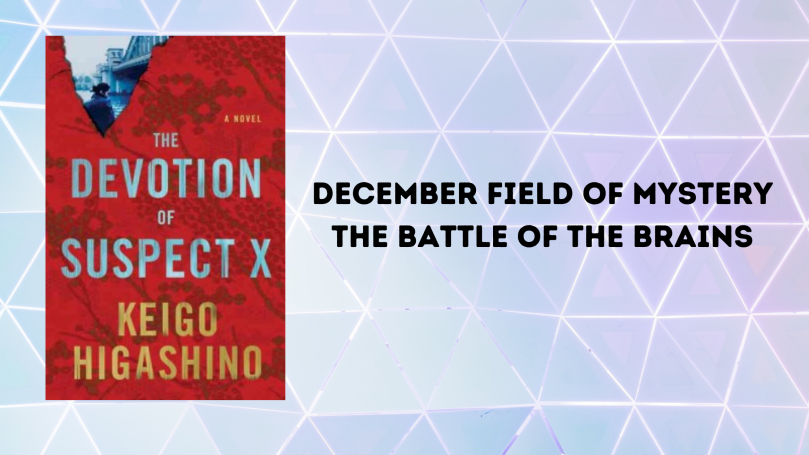How does Stuart Turton keep doing this? Every one of his books is wildly different from the others. First he writes one of the most brilliant, complicated mystery novels I’ve ever read, The 7 ½ Deaths of Evelyn Hardcastle. Then, for something almost completely different, he writes The Devil and the Dark Water, a historical novel set at sea with supernatural overtones (and also murder). And now he’s written The Last Murder at the End of the World, which is a dystopian, speculative fiction novel (which obviously also has a murder). Each one of these books is an amazing, compelling read that touches on larger questions while spinning a complicated, surprising plot that understands the genre conventions but subverts them. The only thing these books have in common is that they involve murder one way or another and they trip your expectations up completely. Turton is a wonderful writer and it’s beginning to seem as if no genre is beyond his skills.
I’ve already written how eager I was to read The Last Murder at the End of the World. The premise is outstanding: there was a disastrous fog that killed just about all life on the planet, including most human beings. There is one island which is protected against the fog, and the remnant of humanity lives there, about a hundred villagers and three scientists who are the leaders of the community. One of the scientists is found dead, apparently murdered. What makes this unprecedented act even worse is that the scientist’s death turns off the machinery that keeps the fog away, so unless they can solve the mystery, the fog will engulf the island and kill everyone within 107 hours (ticking time bomb, anyone?). AND, because that’s not enough to get us really going, everyone on the island has had their memories wiped of the last 24 hours, so even the murderer doesn’t know if they did it.
The book itself is even better than the premise promises. We spend a lot of time leading up to the death of Niema, the scientist, learning about how this society works, and how nobody among the villagers (except Emory, who’s our protagonist) ever questions anything the scientists/elders do or say. There are mysteries lurking in the background from the outset, starting with the nature of the island, the reason why all the villagers die by the time they’re 60 (if they didn’t already die of disease or in an accident before that), the question of why one of the villagers has been exiled from the community for the last five years, and the relationships among the three Elders.
And talk about your omniscient narrator! Here our narrator is Abi, an artificial intelligence who is present in the minds of all the villagers and scientists, who was designed by Niema to control everything and push everyone in the right direction, and who has an agenda of her own which doesn’t necessarily correlate with Niema’s, despite Niema’s having created her. Abi knows everything and can talk in everyone’s mind, but she doesn’t choose to tell anyone the whole truth, at least not at first.
Revelations about the island, the fog, the relationship between the villagers and the elders, and what the villagers are actually doing spring at you frequently, causing you to rethink what you believed you knew about the society and the world. The surprises are genuine but they also make sense when you look back (the best kind of twists, in my opinion), and I wouldn’t dream of spoiling the fun of discovering them for yourself.
Suffice it to say the characters are vivid and well-drawn, they act in ways that are reasonable for their backgrounds and circumstances, and that several times in the book you will think you know who the murderer is, only to discover that you’re wrong, as are the characters themselves. The plot, as I’ve come to expect from Turton, is intricate and detailed and incredibly clever, the kind of plot where you have to sit down and take a number of deep breaths and think about the whole thing right after you finish it.
If you’re ready for an immersive, fascinating reading experience that will upend your expectations, check out The Last Murder at the End of the World. Even if you think you don’t like science fiction or post-apocalyptic novels or mysteries, you will still find something intriguing in this terrific book.



